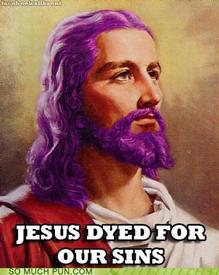kcal to calories?
Options

SAC0O3
Posts: 95
Exactly how many kcal is in a calorie?
I am looking at this cod we have and it says it is 84kcal. How many calories is that?
I am looking at this cod we have and it says it is 84kcal. How many calories is that?
0
Replies
-
Calories are always listed as "kcal".
1 "kcal" is one calorie for our calorie tracking purposes.0 -
Scientifically it means kilo-calorie, but it means the same thing as calorie.0
-
Calories are kilo-calories and vice versa. It's the same thing.0
-
in other words, 1000 calories is 1 kilocalorie
much like 1000 meters is 1 kilometer
something to do with the metric system...0 -
in other words, 1000 calories is 1 kilocalorie
much like 1000 meters is 1 kilometer
something to do with the metric system...
8400 calories seems an awful lot for a serving of fish?0 -
in other words, 1000 calories is 1 kilocalorie
much like 1000 meters is 1 kilometer
something to do with the metric system...
8400 calories seems an awful lot for a serving of fish?
that is correct. but your body burns about the same amount of calories. if your diet is 2000 calories, its actually 2,000,000. hence the reason for the conversion. that many zeroes will confuse people left and right.0 -
i can explain more but its so late for me that i can't really focus on the rest of the explanation. maybe tomorrow.0
-
1 KCAL = 1 CAL0
-
did you mean kilojoul rather than Kcal?
A kilojoul is different to a calorie
if so this website translate http://www.unitconversion.org/energy/kilojoules-to-calories-nutritional-conversion.html 0
0 -
if you mean Kilojuol it is 4.184kj = 1kcal
1kcal = 1000 cal0 -
One calorie (in SI units) is the energy required to heat 1 cc (that's the volume of a teeny box one centimeter on a side) of water by 1 degree centigrade. It's not a lot of energy. For some reason, much of the diet/nutrition world refers to Calories (note the capitol C), which are the equivalent of 1000 little-c calories, or one kilocalorie, which is abbreviated kcal.
So, fur purposes of diet and exercise, 1 Calorie = 1000 calories = 1kcal.
As an engineer, this drives me nuts. I don't understand why we can't just call them kcal and be consistent with the rest of science.0 -
One calorie (in SI units) is the energy required to heat 1 cc (that's the volume of a teeny box one centimeter on a side) of water by 1 degree centigrade. It's not a lot of energy. For some reason, much of the diet/nutrition world refers to Calories (note the capitol C), which are the equivalent of 1000 little-c calories, or one kilocalorie, which is abbreviated kcal.
So, fur purposes of diet and exercise, 1 Calorie = 1000 calories = 1kcal.
As an engineer, this drives me nuts. I don't understand why we can't just call them kcal and be consistent with the rest of science.
I totally feell the same way! 0
0 -
Actually I think in this case a calorie should have been defined as the energy required to heat one liter of water by 1 degree which would have made a millicalorie the energy required to heat one milliliter by 1 degree.0
-
But that then breaks the definition of a lot of useful energy / work units. I didn't invent the SI -- I just use it. It stems back to the times BEFORE the adoption of SI units, when a lot of scientists used the cgs (calorie gram second) system instead of SI units.
http://en.wikipedia.org/wiki/Calorie0
This discussion has been closed.
Categories
- All Categories
- 1.4M Health, Wellness and Goals
- 396.8K Introduce Yourself
- 44.2K Getting Started
- 260.9K Health and Weight Loss
- 176.3K Food and Nutrition
- 47.6K Recipes
- 232.8K Fitness and Exercise
- 452 Sleep, Mindfulness and Overall Wellness
- 6.5K Goal: Maintaining Weight
- 8.7K Goal: Gaining Weight and Body Building
- 153.3K Motivation and Support
- 8.3K Challenges
- 1.3K Debate Club
- 96.5K Chit-Chat
- 2.6K Fun and Games
- 4.5K MyFitnessPal Information
- 16 News and Announcements
- 18 MyFitnessPal Academy
- 1.4K Feature Suggestions and Ideas
- 3.1K MyFitnessPal Tech Support Questions









